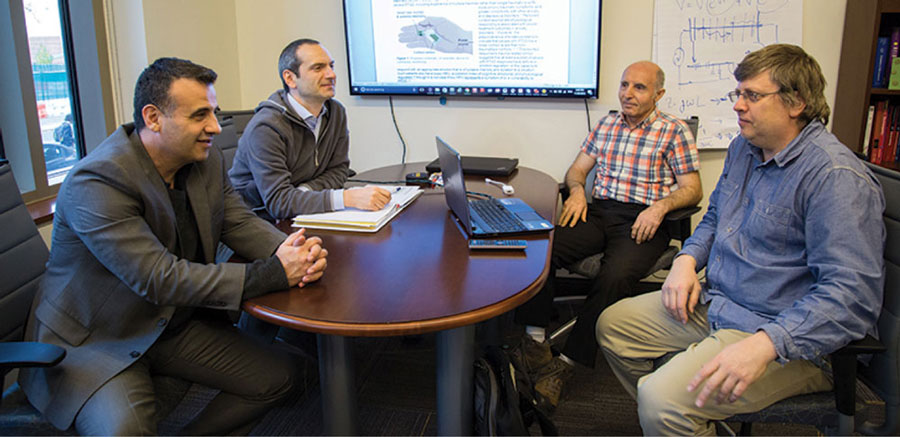Richmond, VA (January 27, 2017) – Development of systems that can detect trace quantities of explosives is of critical importance for national security, both at home and abroad.
To help achieve that objective, a research team based in the Virginia Commonwealth University School of Engineering’s Department of Electrical and Computer Engineering (ECE) has received a grant from the U.S. Department of Defense to design a technology that can detect chemicals used in soft explosives. Soft explosives are the category of simple — often improvised — explosives composed from materials commonly available over-the-counter in drugstores, hardware stores and other outlets.
“In the end, it will take the form of a wearable, a handheld, or a camera mounted at the airports used by security or on the battlefield by soldiers,” said Erdem Topsakal, Ph.D., ECE chair and principal investigator on this project.
Under the three-year, $400,000 grant, Topsakal, Vitaly Avrutin, Ph.D., Hadis Morkoç, Ph.D., and Ümit Özgür, Ph.D. will collaboratively develop the technology be used in building the next generation of explosive-detecting cameras. The proposed device will respond to the electromagnetic signature of specific chemicals.
The project is being funded through the CERDEC NVESD INNOVATIVE DISCOVERY SCIENCE PLATFORM (iDISPLA), which aims to drive innovation in multiple emerging technologies.
“Our project covers the initial stages of technology development. The next stage is application,” Topsakal said. “We are developing the technology behind what will become an important hardware in the future. Conventional explosive detection is a high priority for the Department of Defense right now because of soldier casualties from improvised explosive devices (IED). We hope that this technology, which is currently being developed for the military, will also find use in civilian applications to protect airports and other public places in the future.”
